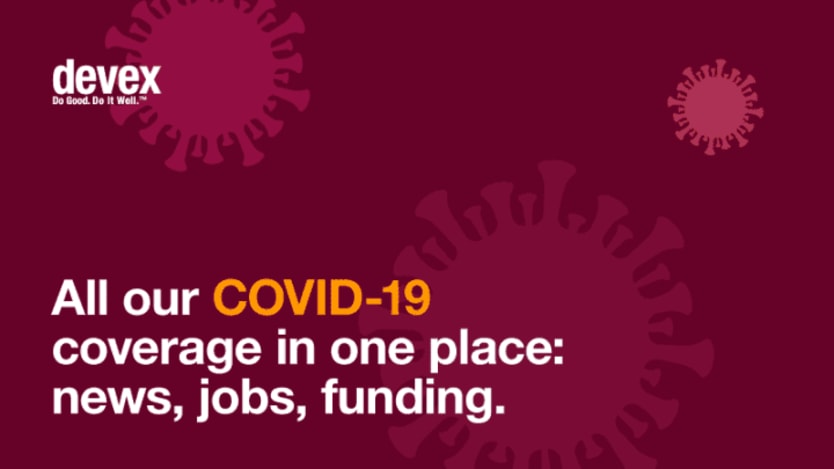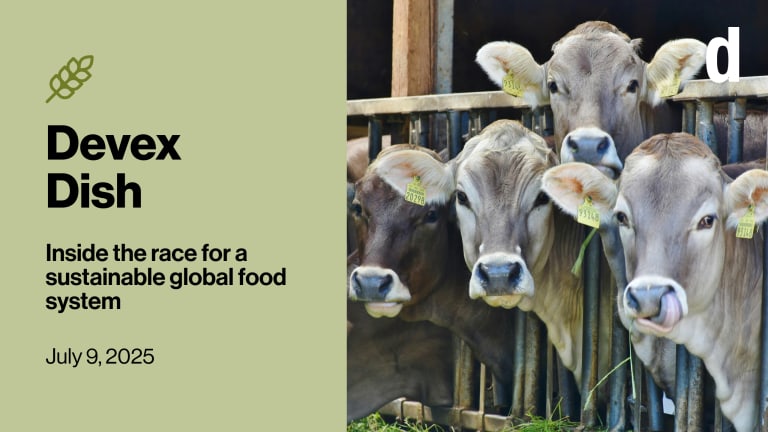
2020 had the potential to be a good year for development aid and a symbolic boost for the next decade as regards the United Nations’ Sustainable Development Goals and related reform and modernization processes.
Despite warnings about the state of the global economy, growth was expected to stay strong and to attenuate, if not alleviate, the tensions between great powers and their repercussions on third-party countries. While, at the beginning of the year, the U.S. and China still had trade disagreements and international organizations could not escape from being caught up in the middle, the commitment to the development agenda was not called into question.
After the pandemic: How will COVID-19 transform global health and development?
We asked 21 leaders and big thinkers to share their insights and predictions for how the COVID-19 crisis might transform the fields of global health and development. Here is what they said.
Now, with COVID-19 getting all the public attention, the question is how the sense of responsibility and solidarity and the concepts underlying development aid will be reshaped and reframed and how big donors will react and change their priorities. My argument is that there is a silver lining in the storm of bad news surrounding us.
We still have 10 years to work on the 2030 Agenda for Sustainable Development. This is not an invitation to be complacent about the 17 SDGs and 169 targets or an excuse to put everything on hold and "talk when the crisis is over." On the contrary, the pandemic is an opportunity to be more strategic in how to do better and how to do more with less, given the additional constraints brought about by this megacrisis.
A key point here — and I am sure that U.N. institutions will react fast — is that we need a fair assessment about short-term priorities and emergencies. Although the global south seems less affected by the pandemic currently — given the number of deaths in the U.S. and Western Europe, some have called this crisis one of the global north — forecasts are showing that the worst is yet to come, and structural vulnerabilities related to the health care infrastructure, resources, and government effectiveness will be only enhanced there.
We should continue working and funding what truly matters — ending poverty and famine, securing better access to education, fighting climate change, closing the gender gap, and tackling inequalities more broadly — while adopting our crisis-mode state of mind and seeking to contain the spread of COVID-19 and its health and economic consequences.
Also, as the embattled World Health Organization has suggested, other needs in times of crisis can be reframed in terms of health. For example, despite the postponement of global climate talks this year, the climate emergency can be reframed as an issue of the global south’s future health.
The pandemic has not put competition between the great powers on hold; in fact, the coronavirus has exacerbated it. We see a constant struggle to define the pandemic narrative, with China pushing its own version of the story as a reliable and trustworthy global partner while others criticize Beijing for the initial management of the outbreak and ask for accountability and even an international investigation. Major donors, though hit hard, have started to regroup and understand their global roles and responsibilities.
As recently announced, the U.S. has committed nearly $508 million in emergency health, humanitarian, and economic assistance on top of the funding already provided to multilaterals and NGOs dealing with the pandemic. The EU — and subsequently its members states, with Germany and Sweden among its aid champions — will redirect more than €374 million ($405 million) of bilateral funding to mitigate the socioeconomic impact of the coronavirus in the Western Balkans and up to €883 million in Armenia, Azerbaijan, Belarus, Georgia, Moldova, and Ukraine. Moreover, Brussels has stepped in to help countries in Africa and the Middle East fight COVID-19.
The International Monetary Fund will provide immediate debt relief for 25 of its low-income member countries, using grant resources to cover their multilateral debt-servicing obligations for six months. The U.N. launched a $2 billion global humanitarian response plan to fund the fight against COVID-19 in the world’s poorest countries, while the World Bank has put together its own bold initiative, a broad economic program would provide up to $160 billion over 15 months.
The Group of 20 industrialized and emerging-market nations have also endorsed temporary debt relief for the poorest countries. States that have sent the most aid during the current pandemic, in addition to the U.S., include China, Japan, Singapore, Vietnam, South Korea, Australia, New Zealand, and the United Arab Emirates.
There are a lot of things to work with to make 2020 a positive year in terms of development aid and assisting the global south in making concrete progress on multiple fronts, including COVID-19. Although this certainly has limits, competition between the great powers could be used to boost development aid — not only for fighting the “infodemic” and getting the facts right but also to help in the response while winning hearts and minds.
Finally, the response to the coronavirus has not been restricted to the actions of national governments and international organizations. There has been an important increase among foundations and wealthy philanthropists, and their role has become more prominent for key global organizations. For example, as U.S. President Donald Trump announced the country would stop its funding to WHO, the Gates Foundation increased its contribution to the global coronavirus response by an additional $150 million.
Also, the entry of corporations into the zone of interest for development demonstrates a change of habit that will continue even after the pandemic. This shows that the open marketplace and competition are now better appreciated than ever before and also that CEOs are increasingly aware of global needs and the war of ideas. If, in the past, aid was mainly about a few dominant large donors, the trend now is to generate greater value by producing and promoting diversity.
All of this points to the fact that there is justified hope in the gloomy, post-coronavirus landscape; despite doomsayers, 2020 is bouncing back, counterintuitively, as the opportunity-in-crisis for development assistance and the global south.
Visit our dedicated COVID-19 page for news, job opportunities, and funding insights.









